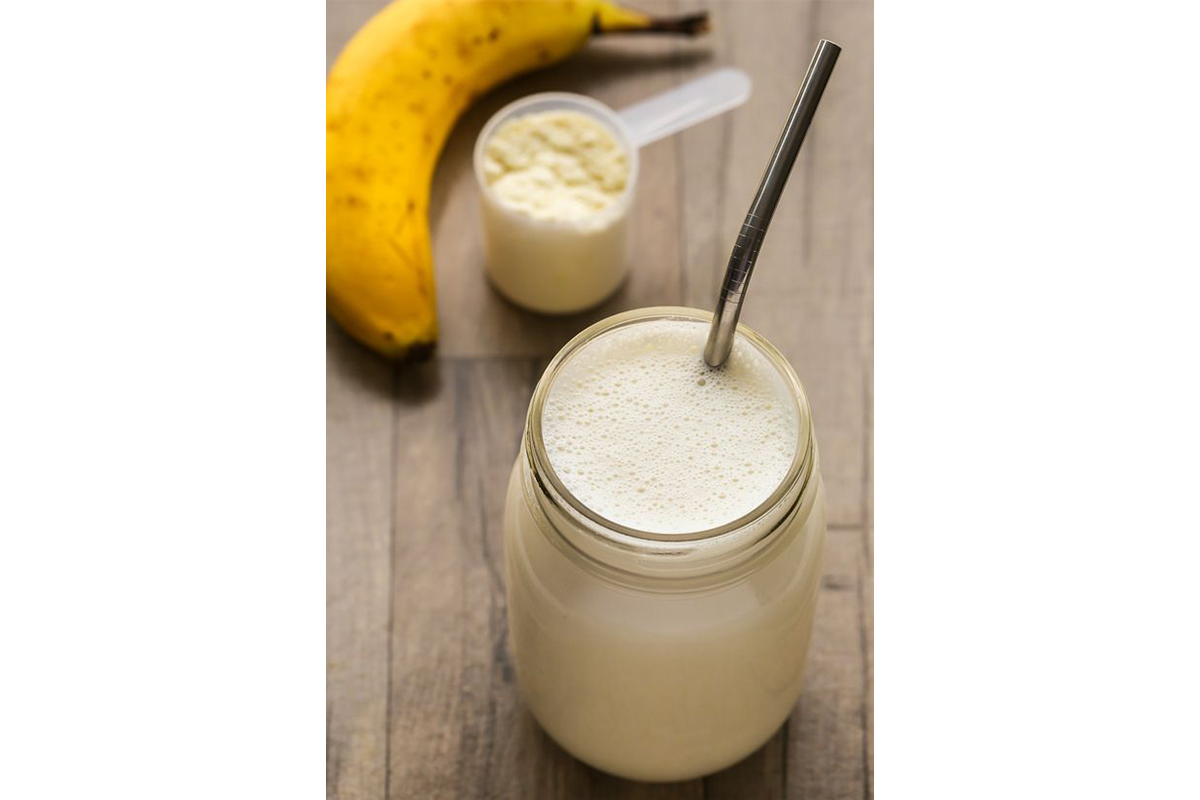Table of contents [Show]
- What is the Best Plant-Based High-Protein Powder?
- Benefits of Plant-Based Protein Powder
- Nutritional Comparison
- Types of Plant-Based Protein
- Choosing the Right Plant-Based Protein
- Digestibility and Absorption
- Popular Brands and Products
- Incorporating Plant-Based Protein into Daily Diet
- Performance and Fitness
- Considerations for Special Diets
- Potential Drawbacks and Side Effects
- Sustainability Aspect
- Customer Reviews and Testimonials
- FAQs
- Conclusion
What is the Best Plant-Based High-Protein Powder?
Plant-based protein powders have taken the health and fitness world by storm, becoming a staple in the diets of many individuals seeking a nutritious and environmentally friendly protein source. As more people embrace plant-based lifestyles, the quest for the best plant-based protein powder intensifies. In this article, we will explore the benefits, nutritional aspects, types, considerations, and popular brands of plant-based protein powder.
In a world where HEALTH-CONSCIOUS choices are gaining prominence, plant-based protein powders offer a viable alternative to their animal-based counterparts. The surge in demand for plant-based options reflects a broader shift towards sustainable and ethical living. Let's delve into the world of plant-based protein and uncover the factors that make it a compelling choice for many.

Benefits of Plant-Based Protein Powder
Health Advantages
Plant-based protein powders come with a plethora of health benefits. They are often lower in saturated fats and cholesterol, making them heart-healthy. Additionally, they are rich in fiber, promoting digestive health and providing a feeling of satiety.
Environmentally Friendly
Choosing plant-based protein contributes to a smaller ecological footprint. The production of plant proteins generally requires less land, water, and energy compared to animal-based counterparts. This eco-friendly aspect aligns with the growing concern for sustainable living practices.
Suitable for Various Dietary Preferences
Whether you follow a vegan, vegetarian, or flexitarian diet, plant-based protein powders cater to a wide range of dietary preferences. This versatility makes them an inclusive choice for individuals with diverse eating habits.
Nutritional Comparison
Comparison with Animal-Based Protein Powders
Plant-based protein powders hold their own against animal-based options. While animal proteins traditionally contain all essential amino acids, careful selection of plant protein sources can provide a comparable amino acid profile.
Essential Amino Acids in Plant-Based Protein
Understanding the amino acid content is crucial when opting for plant-based protein. Combining various plant protein sources, such as pea, rice, and hemp, ensures a complete amino acid profile, making them equivalent to animal-based proteins.
Types of Plant-Based Protein
Plant-based protein powders come in various forms, each with its unique set of benefits.
Pea Protein
Pea protein, derived from yellow split peas, is easily digestible and a great source of branched-chain amino acids, supporting muscle growth and recovery.
Rice Protein
Rice protein is hypoallergenic and suitable for those with soy or dairy allergies. It provides a complete protein source and is easily digestible.
Hemp Protein
Hemp protein is rich in omega-3 fatty acids and fiber, making it an excellent choice for those looking to enhance heart health and digestion.
Soy Protein
Soy protein is a complete protein source, containing all essential amino acids. It is particularly beneficial for individuals looking to manage cholesterol levels.
Combination Blends
Many plant-based protein powders combine various plant sources to create a balanced and comprehensive amino acid profile, offering the best of multiple worlds.
Choosing the Right Plant-Based Protein
Consideration of Personal Health Goals
Selecting the best plant-based protein powder involves aligning the product with personal health and fitness goals. Whether it's muscle building, weight loss, or overall well-being, there is a plant-based option to suit every need.
Allergies and Intolerances
Individuals with allergies or intolerances should carefully examine product labels to ensure they choose a protein powder that aligns with their dietary restrictions. Common allergens such as soy, gluten, or nuts may be present in certain formulations.
Taste Preferences
The taste factor plays a significant role in the sustainability of incorporating plant-based protein into one's routine. Trying out different flavors and brands can help identify the most palatable options.
Digestibility and Absorption
Discussion on Ease of Digestion
Plant-based proteins are generally well-tolerated by most individuals. However, factors like the presence of certain enzymes in specific protein sources can influence digestion. Understanding these nuances can help users select the most digestible option.
Bioavailability of Nutrients
The bioavailability of nutrients in plant-based protein powders is a critical consideration. Some sources may contain anti-nutrients that hinder nutrient absorption. Knowledge about the bioavailability of key nutrients ensures optimal nutritional intake.
Popular Brands and Products
Overview of Leading Plant-Based Protein Powder Brands
Several brands have made a mark in the plant-based protein market. From innovative formulations to sustainable practices, these brands offer a diverse range of products.
Highlighting Notable Products in the Market
Exploring some of the top-rated plant-based protein powders helps consumers make informed decisions. Factors like taste, texture, and ingredient quality contribute to the overall product experience.
Smoothie Recipes
Creating delicious and nutritious smoothies is a popular way to incorporate plant-based protein into daily routines. Simple recipes that cater to different taste preferences make the transition seamless.
Baking and Cooking Tips
Plant-based protein can be a versatile addition to various recipes. Baking and cooking tips ensure that the nutritional benefits are not compromised while enjoying a variety of dishes.
Performance and Fitness
Efficacy for Athletes and Fitness Enthusiasts
Plant-based protein powders have gained recognition in the athletic and fitness community. Their ability to support muscle building, enhance recovery, and contribute to overall performance has led many athletes to choose plant-based options.
Muscle Building and Recovery
Understanding the role of plant-based protein in muscle building and recovery is crucial for those engaged in regular physical activity. Proper supplementation aids in achieving fitness goals without compromising on dietary preferences.
Considerations for Special Diets
Vegan and Vegetarian Considerations
Plant-based protein powders are a valuable resource for vegans and vegetarians, ensuring they meet their protein requirements without relying on animal products.
Individuals with gluten sensitivities or celiac disease can find suitable plant-based protein options that align with their dietary restrictions.
Potential Drawbacks and Side Effects
Allergic Reactions
While plant-based proteins are generally well-tolerated, individuals with allergies to specific plants should exercise caution. Reading product labels and consulting with healthcare professionals can mitigate the risk of allergic reactions.
Digestive Issues
Some individuals may experience digestive issues when introducing plant-based protein into their diets. Gradual incorporation and choosing easily digestible options can alleviate these concerns.
Sustainability Aspect
Environmental Impact of Plant-Based Protein Production
Exploring the environmental impact of plant-based protein production highlights the sustainability aspect. Choosing products with eco-friendly practices contributes to a more sustainable food industry.
Reducing Carbon Footprint
Opting for plant-based protein aligns with efforts to reduce carbon footprints. Understanding the environmental benefits encourages consumers to make choices that positively impact the planet.
Customer Reviews and Testimonials
Real-Life Experiences with Plant-Based Protein Powders
Customer reviews provide valuable insights into the real-life experiences of individuals using plant-based protein powders. Understanding different perspectives aids potential buyers in making informed decisions.
FAQs
- What makes plant-based protein different from animal-based protein?
Plant-based protein is derived from plants, providing an alternative to animal-based protein sources. It is often considered more environmentally friendly and suitable for various dietary preferences. - Can plant-based protein powders meet the protein requirements of athletes?
Yes, plant-based protein powders can meet the protein requirements of athletes. Many formulations are designed to support muscle building, recovery, and overall athletic performance. - Are there any side effects of consuming plant-based protein?
While plant-based proteins are generally well-tolerated, some individuals may experience allergic reactions or digestive issues. It's essential to choose products carefully and consult with healthcare professionals if needed. - How do I choose the right plant-based protein for my dietary needs?
Choosing the right plant-based protein involves considering personal health goals, allergies, taste preferences, and the amino acid profile of the protein source. Trying out different options can help find the most suitable one. - What role does plant-based protein play in weight management?
Plant-based protein can be beneficial for weight management as it is often lower in saturated fats and calories. Additionally, the fiber content contributes to a feeling of satiety, supporting weight loss or maintenance goals.
Conclusion
In conclusion, the best plant-based protein powder is subjective and depends on individual preferences, dietary requirements, and health goals. The diverse range of options available ensures that there is a suitable plant-based protein powder for everyone. By understanding the benefits, nutritional aspects, and considerations discussed in this article, individuals can make informed choices that align with their values and contribute to a healthier lifestyle.



